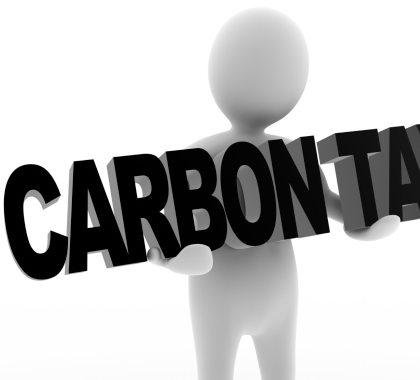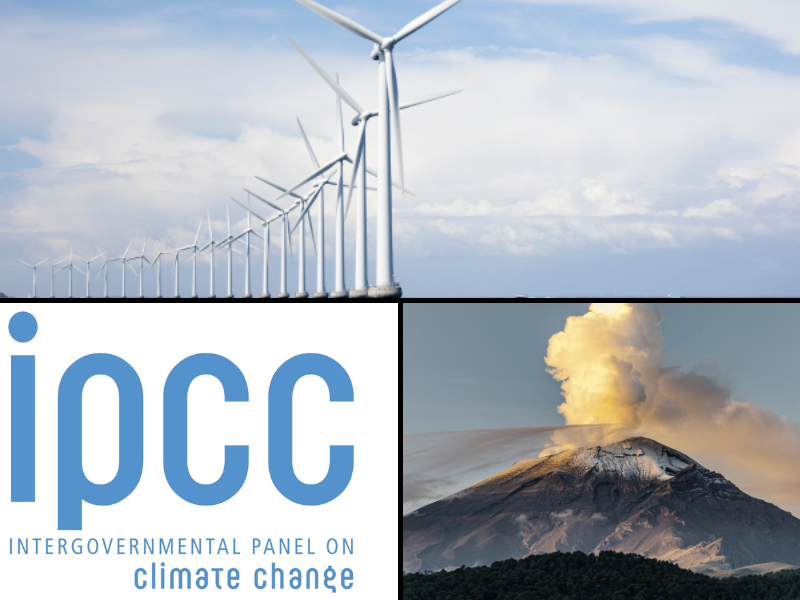A group of 29 research institutes, legal foundations, and grassroots-activist groups, including The Heartland Institute, which publishes Environment & Climate News, submitted a letter to Congress expressing support for a resolution introduced by House Majority Whip Steve Scalise (R-LA) and Rep. David B. McKinley (R-WV) that would put Congress on record again as opposing any carbon tax, which President Donald Trump also opposes.
Scalise and McKinley’s resolution states any carbon tax would result in myriad harms, including an “increase [in] energy prices, including the price of gasoline, electricity, natural gas, and home heating oil.” It would also “mean that families and consumers will pay more for essentials like food, gasoline, and electricity,” causing the most harm to “the poor, the elderly, and those on fixed incomes.” The resolution also says a carbon tax would “lead to more jobs and businesses moving overseas.”
A similar resolution introduced by Scalise in 2016 passed the House of Representatives by a vote of 237 to 163. Six Democrats joined the entire Republican caucus in supporting the legislation.
Working for ‘Energy Dominance’
Scalise says his resolution is meant to combat efforts of special interests to stop Republicans’ plan to make America energy-dominant again.
“Working with President Trump, this Congress is leading America toward energy dominance and strong economic growth, yet some liberal Washington special interests continue to pursue a radical agenda that includes imposing a job-killing carbon tax, which would raise costs on everything we buy from electricity and gasoline to food and everyday household products,” said Scalise in a press statement released upon offering the resolution. “I applaud President Trump for reversing eight years of failed energy policy, and finally putting America on a strong path to energy dominance and economic security for all Americans.”
A carbon tax would increase unemployment and hurt American businesses, says McKinley.
“At a time when America has finally turned the corner and our economy is growing, the last thing we need is a tax that will take money out of the pockets of middle-class families,” McKinley said in the press release. “A carbon tax would lead to a decrease in the production of America’s abundant energy resources that would result in lost jobs, a weakening of American competitiveness globally, and a significant increase in energy costs for middle and low-income families.”
Anti-Carbon-Tax Coalition
The coalition letter noted multiple independent analyses have concluded a carbon tax would cost jobs, reduce economic growth, and disproportionately harm the poorest Americans.
“[A] 2014 Heritage Foundation report found that a $37 per ton carbon tax would lead to a loss of more than $2.5 trillion in aggregate gross domestic product by 2030 … [or] more than $21,000 in income loss per family,” the letter states. “In addition, a carbon tax would cost over 500,000 jobs in manufacturing and more than one million jobs by 2030. According to a 2013 CBO report, a carbon tax is highly regressive.”
A carbon tax is costly and unnecessary, says Tim Huelskamp, Ph.D., president of The Heartland Institute.
“A carbon tax has long been a no-go for as long as Republicans have controlled Congress, but there’s no reason to take chances, so this resolution is important,” Huelskamp said. “A carbon tax is a tax on productivity, which is the last thing our economy needs now that it’s finally back on its feet.
“A carbon tax is also unjustified because the burning of fossil fuels is not causing a climate crisis,” said Huelskamp.
‘A Tax on Everything’
Grover Norquist, president of Americans for Tax Reform, which assembled the coalition, says a carbon tax would raise the prices of all goods and services.
“A tax on carbon is a tax on energy, and a tax on energy is a tax on everything,” said Norquist. “A carbon tax hides its true costs inside the price of all products.
“The Scalise resolution would put Congress on record against ever imposing a carbon tax,” Norquist said. “The House will likely pass this resolution, putting another nail in the coffin of an American energy/carbon tax, but unfortunately, tax-and-spenders will be back again and again, so we must constantly be on guard.”
Carrie Lukas, president of the Independent Women’s Forum, who also signed the letter, says a carbon tax would harm consumers and workers.
“The carbon tax is simply another tax that would burden American consumers and the economy and lead to fewer jobs and less opportunity,” Lukas said. “Congress just made great progress in reducing America’s tax burden [through the 2017 tax reform act], which is paying off in exactly the ways it should, with wages starting to rise and more employment opportunities becoming available.
“Congress should reassure Americans they aren’t going to undermine that progress by increasing taxes again,” Lukas said.
H. Sterling Burnett, Ph.D. ([email protected]) is a research fellow at The Heartland Institute.
INTERNET INFO
Grover Norquist et al., “Coalition Letter Supporting the Scalise Anti-Carbon Tax Resolution,” April 26, 2018: https://heartland.org/publications-resources/publications/coalition-letter-supporting-the-scalise-anti-carbon-tax-resolution
Rep. Steve Scalise (R-LA) and Rep. David McKinley (R-WV), “H. CON. RES. 119 Expressing the sense of Congress that a carbon tax would be detrimental to the United States economy,” April 26, 2018: https://heartland.org/publications-resources/publications/hconres119—expressing-the-sense-of-congress-that-a-carbon-tax-would-be-detrimental-to-the-united-states-economy
Official Connections:
Rep. Steve Scalise (R-LA): https://scalise.house.gov/; https://scaliseforms.house.gov/contact/
Rep. David McKinley (R-WV): https://mckinley.house.gov/; https://mckinley.house.gov/contact/





